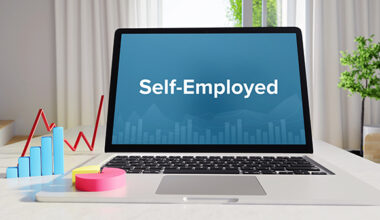Managing rental income effectively is crucial for property owners, whether you’re handling a single property or an expansive real estate portfolio. A common question that arises for landlords is whether a business bank account is necessary to manage their rental income. This article will explore the key factors that can influence whether you need a business account and how to make the best decision for your rental business.
Personal vs. Business Bank Account: Key Differences
Before diving into the question, it’s essential to understand the core differences between personal and business bank accounts:
- Personal Bank Accounts: These accounts are primarily intended for individual, personal financial transactions. They do not offer the robust financial management tools that many businesses need, such as detailed expense tracking or integration with accounting software.
- Business Bank Accounts: These accounts are designed specifically for business-related transactions. They provide added benefits, including the ability to issue invoices, manage payments to contractors, and keep finances organized for tax filing.
Understanding the distinctions between the two is crucial when determining the best option for managing your rental income.
When You Must Have a Business Bank Account
In some cases, having a business bank account isn’t just recommended—it’s legally required. Here are the most common scenarios where a business bank account is necessary:
- Operating as a Limited Liability Company (LLC): If your rental property is managed under an LLC or any other formal business structure, the law requires you to separate your personal and business finances. In this case, a business account is essential, ensuring that all rental-related income and expenses are handled separately from personal funds.
- Managing Multiple Properties or Complex Transactions: If you’re managing several rental properties or dealing with a high volume of transactions (e.g., maintenance expenses, payments to contractors, etc.), having a business account can simplify the management of these funds. It can also make it easier to track income, deductions, and tax obligations.
Situations Where a Personal Bank Account May Be Sufficient
For many small landlords, particularly those managing a single rental property or those with straightforward rental income, a personal bank account may be sufficient. Here are a few cases where a personal account might work:
- Sole Ownership of a Single Property: If you own only one rental property and manage it on your own, you may not need the extra services offered by a business account. However, even in this case, keeping your rental income separate from your personal finances is important for clear record-keeping.
- Sole Proprietor: If you’re managing properties as a sole proprietor, you are not legally required to open a business bank account. However, opening a separate personal account to handle rental income can help keep things organized.
Benefits of a Business Bank Account for Rental Income
Even if you’re not required to open a business bank account, there are several advantages to doing so:
- Simplified Tax Filing: By keeping your rental income and expenses in a separate business account, you can more easily track your property’s financial performance and simplify tax reporting. This reduces the chance of mixing personal and rental income, which can complicate tax filing.
- Professionalism and Credibility: A business bank account can make your rental business appear more professional to tenants and service providers. It can also enhance your credibility when dealing with investors or financial institutions.
- Building Business Credit: If you plan to expand your property portfolio in the future, having a business account can help build your business credit score. This can be beneficial when applying for loans or lines of credit to fund additional real estate investments.
- Access to Business-Specific Tools: Business bank accounts often come with tools to help landlords manage their finances more effectively. Features such as automated expense categorization, invoicing, and payment management can streamline your operations.
How to Decide If You Need a Business Bank Account
Making the decision about whether or not to open a business bank account depends on a few key factors. Here are some considerations to help you decide:
- Assess Your Business Structure: If you’re running an LLC or any other formal business entity, a business bank account is mandatory. For sole proprietors, it’s optional, but still worth considering for better organization and financial clarity.
- Evaluate the Complexity of Your Rental Business: If your rental business involves multiple properties, complex transactions, or if you work with several contractors, a business bank account can help you stay organized.
- Think About Your Future Plans: If you plan to expand your rental business by acquiring more properties, it may be a good idea to open a business account early. It will help you build business credit and give you a financial framework for growth.
- Consider Tax Implications: Keeping personal and rental finances separate can help during tax season, making it easier to provide accurate reports and minimizing potential issues with the IRS.
Conclusion
In conclusion, while not all landlords are required to open a business bank account, it can be a wise choice in many cases. Property owners who manage their rental income through LLCs or have multiple properties should strongly consider opening a business account. For sole proprietors with simple rental income, a personal account may suffice, but separating personal and business finances is always a good idea.
By assessing your business structure, future goals, and financial complexity, you can determine whether a business bank account is the right choice for managing your rental income effectively. If in doubt, consult with a financial professional to ensure you’re making the best decision for your rental business.






